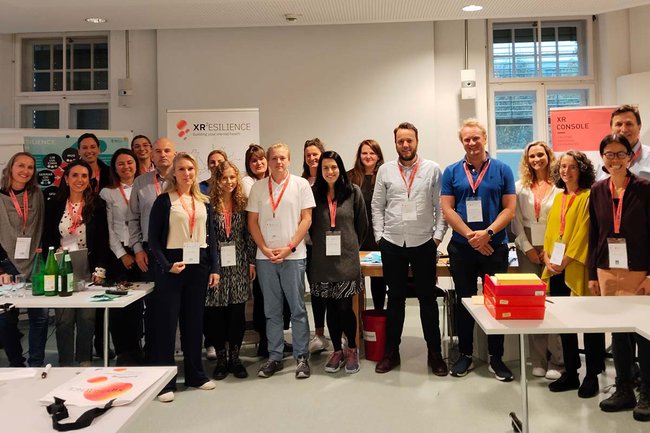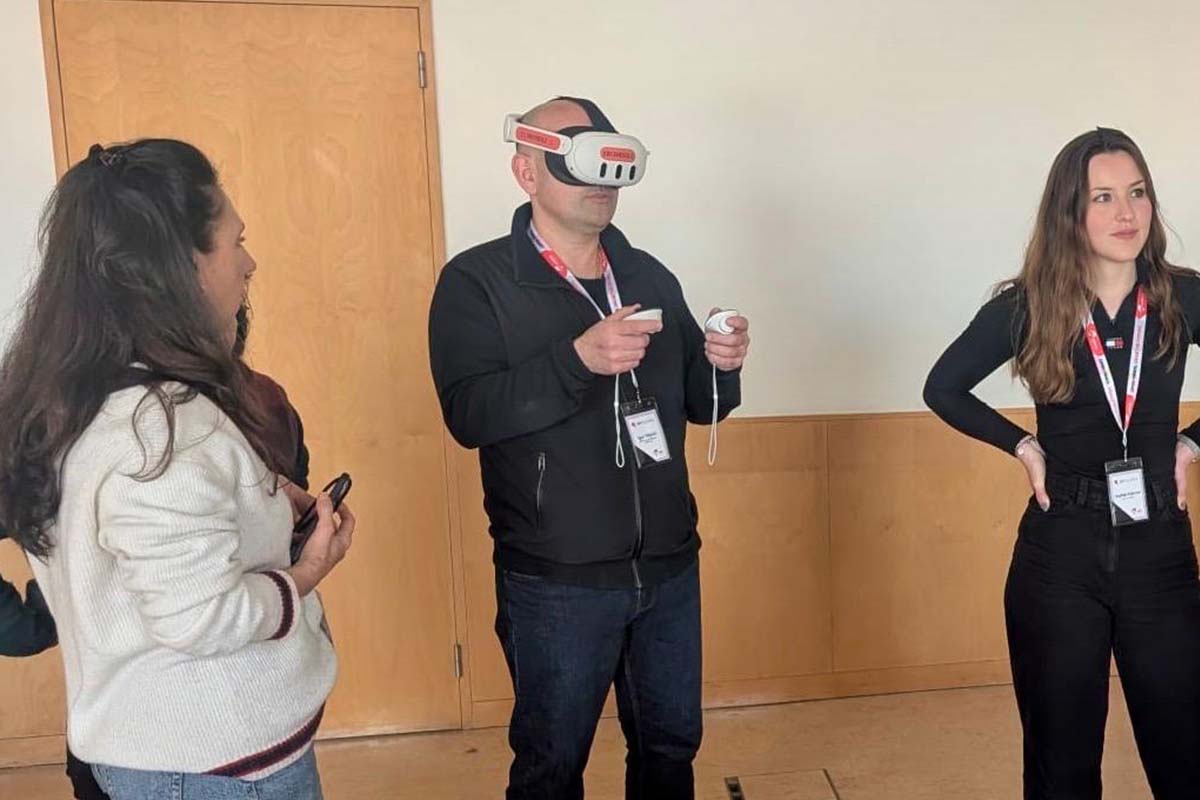Resilience Training for Nurses Using XR Glasses
St. Pölten UAS Researchers Develop Extended Reality Training Programme in EU Project

In the project "XR2esilience", a European research team including researchers from the St. Pölten University of Applied Sciences develops an extended reality training programme to improve the resilience of healthcare professionals. In order to be able to offer a customised training, the programmes are designed to train the participants for many different stress factors and cater to individual needs.
Strengthening nurses mentally
The number of people working in the health sector who suffer from stress-related disorders such as depression, anxiety, and sleeping problems has increased considerably. In the project "XR2esilience", a European research team examines how resilience – in other words, the psychological power to adapt and cope – can be improved in health professionals in the long term. The EU project is coordinated by the Medical University of Graz and implemented together with the St. Pölten UAS and ten more cooperation partners from Austria, Germany, Spain, Portugal, and Croatia.

© Christoph Böhm
"Although the significance of nursing staff’s mental well-being has been recognised, it is still difficult to find effective solutions. This is exactly where ‘XR2esilience’ comes in using Extended Reality (XR) formats. By integrating immersive XR applications, we want to offer a tailored resilience training that can be adapted to people’s individual needs", emphasises Vanessa Leung, head of the project team at the St. Pölten UAS and senior researcher at the St. Pölten UAS’ Center for Digital Health and Social Innovation.
By means of a cohort study and the analysis of existing data, "XR2esilience" will determine the most important resilience factors and evaluate the effectiveness of XR training. The project will also analyse barriers to acceptance and issue recommendations for the creation of a supportive nursing environment.
Realistic Simulations
XR technologies make it possible to realistically imitate a multitude of situations and simulate stress triggers. The earlier such XR training programmes are applied in the professional career of health professionals, the more effective the results. This is why XR technologies ought to be used even in the training of nurses because it would prepare them very well for the challenges of professional life. Furthermore, the project builds on insights from various disciplines and interdisciplinary dialogue.

© St. Pölten UAS / Yvonne Prinzellner
Customised Training
The researchers are working on training programmes for hospitals and healthcare institutions. Contrary to previous research, the team now attaches great importance to users’ acceptance of the XR trainings. To this end, the XR interventions need to be adapted to people’s individual needs which are to be evaluated with the help of a randomised controlled trial.
Assistance for Employers
In order to make the use of XR trainings easier for employers and political decision-makers, the researchers issue recommendations including comprehensive guidelines and a simplified checklist. The developed tools and publications will be made available to the research community via the European Open Science Cloud (EOSC).
Digital Biomarkers in the Health Sector
Leung‘s research focuses on the use of multimodal data from sensor technologies in order to assist, improve, and validate training and therapy in the health sector.
"To achieve optimally effective XR therapy and training, we need to adjust it to users’ needs. We can accomplish that using digital biomarkers", explains Leung.
Digital biomarkers are objective, quantifiable physiological and behaviour-related data that are is collected and measured using digital devices.
"We can increasingly obtain data on stress, cognition, and emotional state from digital devices that are worn on the body. We systematically use this data to personalise XR therapies and trainings."
Bundled Competencies
Vanessa Leung is part of a competence team at the Center for Digital Health and Social Innovation that specialises in the application of digital biomarkers in workable situations outside of the lab. The UAS researchers, among them Sophia Wanner and Lukas Iselor, record physiological sensor data and use multimodal data analyses to gain insights into the interaction between people and their environment. Through projects and cooperations with partners from the clinical, industrial, and scientific realms, the team is involved in research and knowledge transfer at the national and European levels.
More about XR2esilience
The project "XR2esilience" receives funding from means of the European Union.
Further information is available on the following websites: